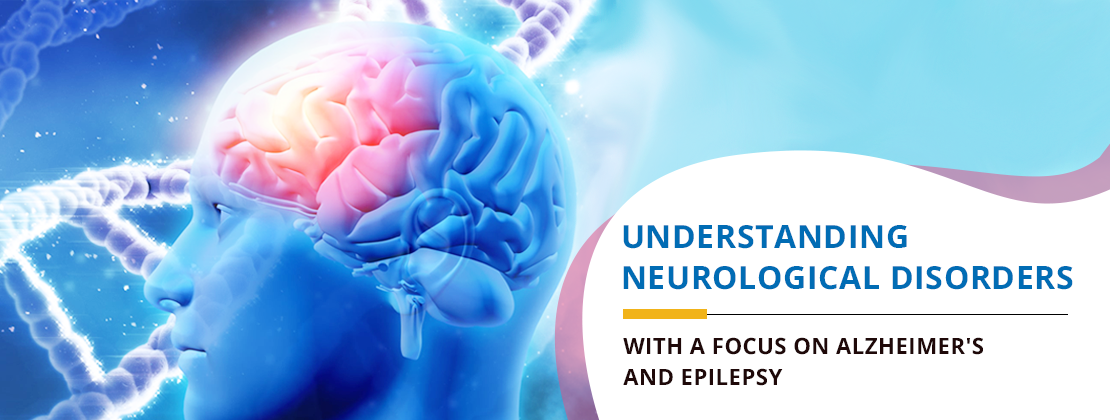
Home / Blog / Understanding Neurological Disorders with a focus on Alzheimer's and Epilepsy
Neurological disorders are some of the most complex and challenging conditions affecting millions worldwide. They involve a range of illnesses that impact the brain, spinal cord, and the nerves connecting them. Among these, Alzheimer’s disease and epilepsy stand out due to their prevalence and significant impact on individuals and families. This blog aims to explain these conditions, offering a comprehensive look at their symptoms, causes, treatments, and potential preventive measures.
Neurology is the branch of medicine concerned with the study and treatment of disorders that affect the nervous system. This includes the brain and spinal cord, as well as the vast network of nerves that runs throughout the body. Neurologists are medical professionals who specialise in diagnosing and managing these conditions, improving the quality of life for their patients.
Alzheimer’s disease is a progressive neurological disorder that leads to the deterioration of cognitive functions, primarily affecting memory and thinking skills. Over time, it can profoundly impact an individual’s ability to perform everyday tasks.
While the exact cause of Alzheimer’s is not fully understood, it’s believed to involve a combination of genetic, lifestyle, and environmental factors that affect the brain over time.
There’s currently no cure for Alzheimer’s, but there are treatments available that can temporarily slow the worsening of symptoms and improve the quality of life for those with Alzheimer’s and their caregivers. These include medication for memory loss and therapies to manage behavioural symptoms.
While there’s no sure way to prevent Alzheimer’s, certain lifestyle changes have been associated with a reduced risk:
Epilepsy is a neurological condition characterised by recurrent, unprovoked seizures. It can affect anyone regardless of age, gender, or background.
Epilepsy can stem from various factors, including:
Treatment for epilepsy focuses on controlling seizures. This may include:
While not all cases of epilepsy can be prevented, reducing the risk of brain injury could lower the likelihood of developing the condition:
Understanding the complexities of Alzheimer’s and Epilepsy is the first step towards building a more empathetic and supportive community. At HCG Multispeciality Hospitals, we are committed to providing comprehensive care and support for those affected by neurological disorders. By staying informed and adopting healthy lifestyle choices, we can all contribute to a future where these conditions are better managed.
In conclusion, while neurological disorders like Alzheimer’s and Epilepsy present significant challenges, advances in research and treatment are continuously being made. By fostering awareness and understanding, we can support those affected and their families, making a positive difference in their lives.